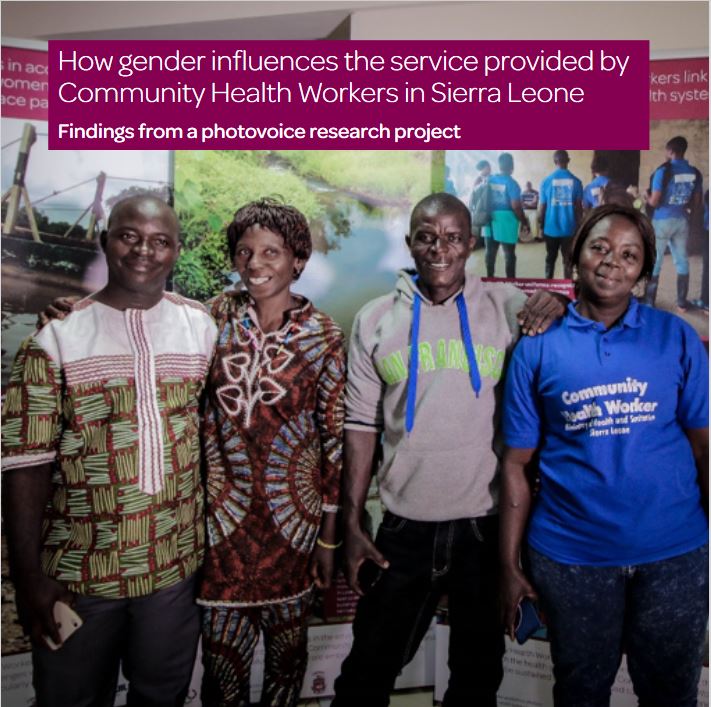
How gender influences the service provided by Community Health Workers in Sierra Leone
The finding from a photovoice research project – you can download the booklet here.
Background
Following the Ebola epidemic Sierra Leone is investing in a new cadre of Community Health Workers. A policy was launched in 2016 and 15,000 Community Health Workers have been selected, trained and deployed.
This collaborative project between the Liverpool School of Tropical Medicine (LSTM) and the College of Medicine and Allied, Health Sciences (COMAHS) used photovoice to conduct research with seven Community Health Workers in two purposefully-selected districts in Sierra Leone: Bonthe district (rural, hard to reach, riverine) and eight in Kenema district (rural). They took photos of their communities, and the work they do, to illustrate their experiences and the opportunities and challenges they face.
The ways in which gender roles and relations shape health experiences and access to services emerged as a key theme. Community Health Workers also used photovoice to demonstrate how they negotiate gendered and cultural norms within their communities to promote better health.
This booklet explores how gender shapes livelihoods, risks, experiences of pregnancy and health-seeking behaviour.
You can download the booklet here.
Further information
We welcome comments on this and other aspects of ReBUILD’s work. For further information or to make any comments on the brief please contact Joanna Raven.